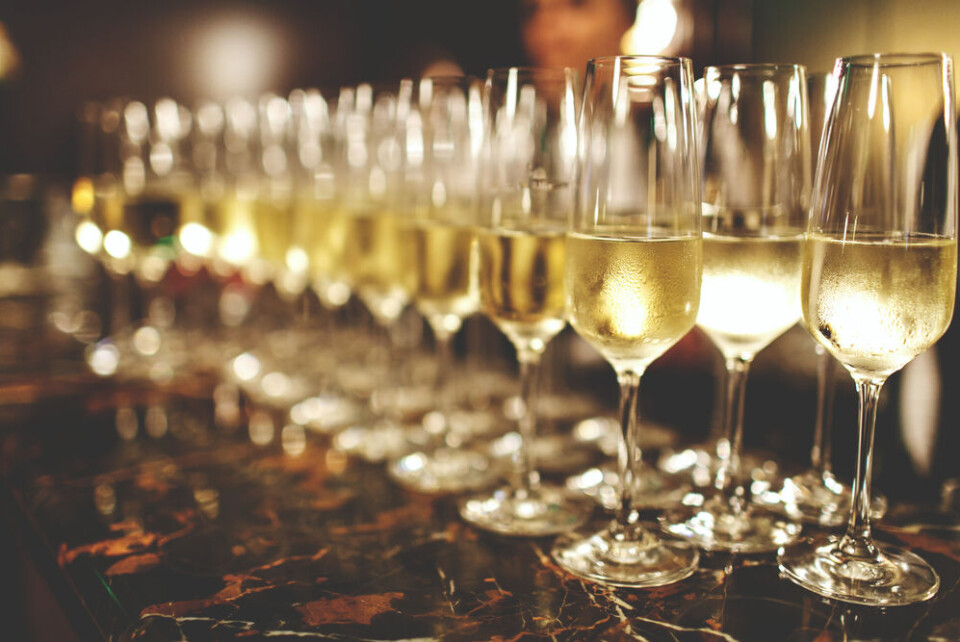-
‘No-licence’ cars: six rules to know in France in 2025
Double the number of these cars were registered in 2024 compared to 2019
-
Hiker videos pack of seven wolves at Alpine ski resort
‘Unprecedented’ video captures wolves roaming on slopes
-
Deadlines for sending Christmas post from France to UK and other destinations
Deadlines for many international destinations are different
French champagne makers call for Russia boycott over new wine law
Trade body demands European action after Vladimir Putin signs law restricting use of the ‘champagne’ label to Russian sparkling wines

French champagne’s trade body has called on Europe to intervene after President Vladimir Putin signed a law saying only Russian winegrowers could sell wine labelled “Champagne” in Russia, and French champagne will be classified as “sparkling wine.”
The Comité Champagne said the new law, signed last week, was “scandalous.”
Russian wine producers have ignored international laws and labelled their sparkling wine as ‘champagne’ since the Soviet era.
The Comité champagne said the new law, while allowing French champagne to continue to use the word Champagne on its labels, refused to allow them to use the Russian translation, Shampanskoe, and obliged the wine to be called “sparkling wine” in the Cyrillic alphabet.
The new law was signed as a deadline approaches for Russian crémants (sparkling wines made using champagne methods) to stop using the word ‘Champagne” on their labels.
The order was made after the Comité Interprofessionnel du Vin de Champagne won a legal battle in 2010.
“To deny the Champenois the right to use the name “Champagne” in Cyrillic is scandalous,” the Comité’s co-presidents, Maxime Toubart and Jean-Marie Barillére, told The Connexion in a statement.
“It is our common heritage and the apple of our eye.”
The statement added: “This rule will not give Russian consumers clear and transparent information over the origin and characteristics of the wine.”
In a call for diplomatic action from both France and the EU, it added that the new law brought into question 20 years of work between Russia and the EU over the protection of appellations d’origine.
Boycott call
The Comité Champagne urged all Champagne houses to boycott Russia until the matter is resolved.
LVMH, the company which sells Dom Pérignon, Ruinart, Moët & Chandon, Veuve Clicquot, Krug and Mercier champagnes, has reportedly already sent a letter to its Russian distributors saying it will no longer sell its champagnes in Russia as a result.
The company did not respond to requests for information from The Connexion, but Sud Ouest newspaper reported that it received a confirmation from AST, one of the biggest wholesalers of wines and spirits in Russia.
It was followed by a communiqué in which AST said the measure was “temporary” until an appropriate solution could be found.
Read more: The best champagnes to buy in France
Russia is the 15th largest export market for champagne and in 2020, 1.8million bottles, worth an estimated €35million were exported to the country.
Last year 245million bottles of champagne were exported globally, a fall of 16% compared to 2019, with the fall being attributed to the Covid crisis.
Overall sales, including in France, last year were around €4billion, down from €5billion in 2019.
Court cases
Comité Champagne is usually active in the courts to stop anyone using the word ‘champagne’ to sell sparkling wine, if the wine is not from grapes grown in the AOC Champagne designated region.
It has agreements over the use of Champagne in 120 countries.
One of its latest victories came last month. After a 20-year court battle, winegrowers from the Swiss village of Champagne were prevented from selling their still wine labelled vin du commune de Champagne.
Charles Goemaere, the managing director of the Comité de Champagne, told Connexion then that legal action was necessary to protect the livelihoods of the 20,000 growers and other workers who made the famous French wine.
“We are very proud of our wine and know it is important for people all over the world to know that if they buy a bottle of champagne, they know they are buying a high quality product made following strict rules and procedures.
“If we let anyone just use the name Champagne there is a risk that buyers will be disappointed by poor quality products.”
Related articles
























